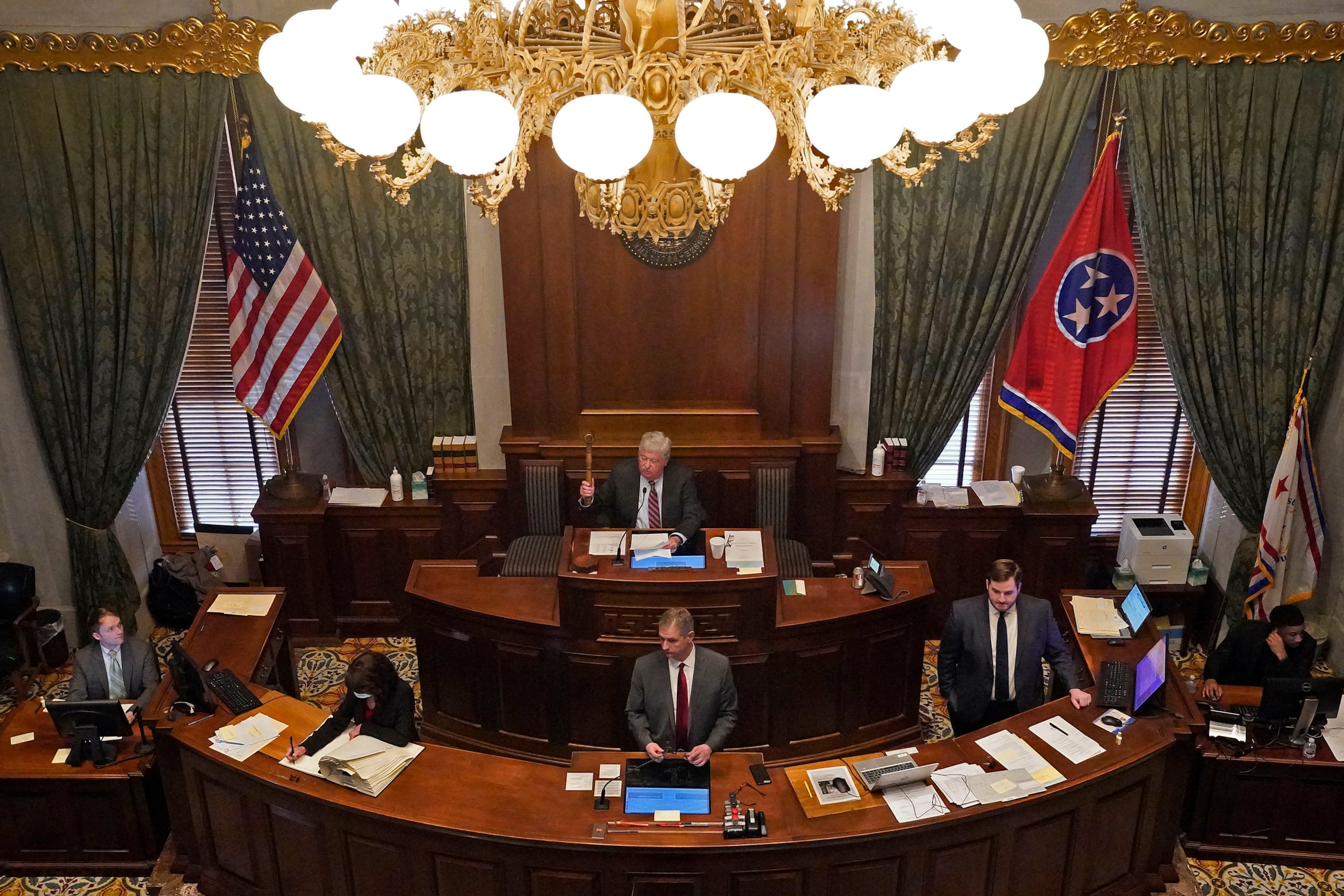Sign up for Chalkbeat Tennessee’s free daily newsletter to keep up with statewide education policy and Memphis-Shelby County Schools.
A proposal to shift low-performing schools from Tennessee’s sputtering takeover and turnaround district to other state-approved but locally managed intervention models passed unanimously Monday in the full Senate.
The bill, which is awaiting action in the full House, seeks to phase out the Achievement School District, the state’s most ambitious and aggressive school improvement model, by the end of 2025-26 school year.
It also would strip the state education commissioner’s authority to take over neighborhood schools that are performing academically in the bottom 5%. Under the ASD, the state typically assigned those schools to charter operators to run.
In place of the ASD, the bill would create a school improvement model designed to foster more collaboration between the local district and the state education department.
Tennessee’s education chief would have authority to direct a local district to choose from three turnaround approaches — under a charter operator, a public university, or an independent turnaround expert — for each of its low-performing “priority” schools.
The turnaround work would be locally managed, but with state oversight. For starters, the state would have to approve local districts’ turnaround choices.
“The ASD has not worked for some time, which we can all agree (on),” said Sen. Raumesh Akbari, a Memphis Democrat who is co-sponsoring the legislation with Rep. Antonio Parkinson, also of Memphis.
“This will put the control back in the hands of the locals,” she said on the Senate floor.
The bill is one of several legislative proposals seeking to address the failures of the ASD, created under a 2010 state law as part of a package that helped Tennessee win a $500 million federal grant in the Race to the Top competition.
Parkinson’s companion bill has similar goals.
Meanwhile, GOP leaders in the House are pressing for a massive private-school voucher bill that includes a provision to phase out the ASD on July 1, 2026.
All three measures advanced this year after several top Republicans in the GOP-controlled legislature acknowledged that the state-run district isn’t working and should be replaced.
Not only did removing struggling schools from local governance fail to improve student outcomes, but most ASD schools also performed no better than low-performing schools that received no intervention, according to researchers. Among the challenges, the state-run district struggled with high teacher turnover and significant community backlash, especially in Memphis, which became the hub of the ASD’s work.
The ASD, which had a peak of 33 schools in 2016, continues to shrink, especially since 2022, as schools began to complete their prescribed 10 years under the model. Currently, 13 schools are left in its portfolio, the last of which will complete their charter contracts at the end of 2025-26 school year.
“We’ve got to do something different,” Akbari said before Monday’s vote. “This bill would create a partnership between the local district and the state education department to make sure priority schools are receiving meaningful interventions that give it a chance for turnaround.”
How much those interventions might cost is unknown. School turnaround work is expensive, but the legislature’s fiscal analysts said the cost will depend on which turnaround methods and contractors are used for the work.
Akbari and Parkinson have been working with the education department to develop a new school turnaround strategy that doesn’t include the heavy-handed takeover tactics that put the ASD at odds with the districts that previously ran the schools, and their communities.
They also want to keep Tennessee in compliance with the federal Every Student Succeeds Act, which requires each state to have a rigorous improvement plan for schools that are struggling the most.
Some details of Akbari and Parkinson’s companion bills differ. For example, Akbari’s proposal could apply to any of the state’s approximately 95 priority schools, at the direction of Tennessee’s education commissioner.
Parkinson wants to create a hub of school improvement tools for any Tennessee public school to access, no matter how much it falls short or in what area. He wants to avoid adding negative labels to schools beyond existing state or federal designations that are based on their overall achievement, or the achievement gaps among certain student groups.
“You kill the esteem of the school, the teachers, the students, parents, when you label a school as being part of the ASD, or whatever you want to call it,” Parkinson said. “The fact that our state already gives priority designations to schools is enough.”
Even so, Parkinson said his and Akbari’s proposals “aren’t that far apart,” especially on the most important issues.
“There will be no state takeover under either version,” he said. “That’s been a dismal failure for our state. In the process, we’ve wasted over a billion and a half taxpayer dollars. And we’ve fallen short when it comes to some precious years in the lives of ASD students.”
Marta Aldrich is a senior correspondent and covers the statehouse for Chalkbeat Tennessee. Contact her at maldrich@chalkbeat.org.






